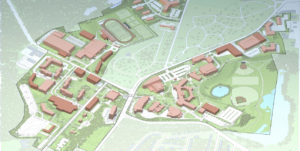

Community engagement strives to better engage the community to achieve the long-term and sustainable outcomes, and the processes, research and even implementation.
There are as many definitions of community engagement out there, you will find, as the people who are trying to define it. You will see that in its simplest terms,
‘Community engagement strives to better engage the community to achieve the long-term and sustainable outcomes, and the processes, research and even implementation.’
You might also wish to check out our article on understanding the Carnegie Classification pertaining to community engagement.
You will come to see that engagement is not so much driven by a ‘model’ as much as by a ‘framework of guiding principles, strategies and approaches’. It is this very framework that is built on the principles that respect the right of all the community members to be informed and empowered.
What community engagement does, then, is to employ a whole range of tools and strategies in order to ensure success.
That being said, it also places a premium on fostering and enhancing trust, which it believes to be a critical element where it comes to long-term engagement and effective governance.

What community engagement does, then, is to employ a whole range of tools and strategies in order to ensure success.
If you probe further into the meaning of community engagement, you will find that the word ‘community’ is really a broad term that is used to define groups of people, be they stakeholders or perhaps interest groups.
A community might also be a geographical location or a community of affiliation or identity, as in a sporting club.
In that instance, then, you will see that ‘community engagement’ is a strategic process with the sole purpose of working with identified groups of people, be they connected by geographical location or affiliation to identity, and address issues that affect their well-being.
Furthermore, you will see that this linking of the term ‘community’ to ‘engagement’ serves to broaden the scope, and in the process shifting the focus from the individual to the collective, making sure that due consideration is made of the diversity that exists within any community.

If we delve even deeper, we will see that community engagement is a blend of science and art.
If we delve even deeper, we will see that community engagement is a blend of science and art. You will see that the science comes from things like sociology, anthropology and other disciplines.
It also comes from the organization of concepts that are drawn from the literature on community participation, community development and community psychology.
Where it comes to the art, it comes from the understanding, skill as well as the sensitivity that is used to apply and adapt the science in ways that fit the community, as well as the purposes of special engagement efforts.
Furthermore, community engagement is something that can be complex and labor-intensive and require dedicated resources like time and funding, as well as people with the necessary skills. There are citizens and leaders in countries like the United States and in other parts of the world, that are struggling to make the right choices in lieu of the communities and the issues that they address.
Keeping that in mind, you will see that building and implementing effective strategies really needs a most solid grounding in the best tools and information you can find out there.
In a nutshell, what is the importance of having community engagement where it comes to higher education?
Let’s take a look.
The Reasons Community Engagement Is Needed Out There

It can help to tackle critical issues that are rampant in society, and work towards the public good.
It can help to tackle critical issues that are rampant in society, and work towards the public good.
- It can help to enrich things like scholarships and creative activity.
- It can help in the enhancement of curriculum and learning.
- It can help to prepare the students to be engaged citizen and leaders.
- It can help in the strengthening of democratic values and civic responsibility.
There is a lot, indeed, where it comes to learning from community engagement.
You will see that in the case of the faculty, it means the sacrifice of a part of the organized control of a rational learning environment, to venture out into the chaos of the world with a view towards testing whether what they teach and research, can be actually used to benefit real people who are living in circumstances that are far from desirable.

There is a great benefit for the faculty as well.
However, there is a great benefit for the faculty as well. You will see that the strong community partnership that is achieved, will serve as a locus that involves students, staff and alumni, as well as the individual faculty members, in rewarding and meaningful work.
You will see that some of the most powerful teaching and learning experiences for both the faculty and students, can occur through research methods and project development courses that are focused on answering a research question or a project challenge that a community partner organization has posed.
Thus, you will see that through the process of community engagement, the faculty will be able to apply their expertise in defining problems, as well as help those students to answer real questions that will address real problems. Furthermore, you will be able to see that community organizations will be able to obtain information that is often out of their reach.

This will have a positive impact on the reputation of the university.
In traditional lecture courses, you will see that a higher level of academic mentoring is often absent, but the good news is, with the procurement of that new information thanks to community engagement, students can actually reap the benefits of that higher academic mentoring.
You will see that really good community partnerships emerge from a common mission on both sides that will ultimately result in mutual benefit.
In the case of higher education, you will find that the practical education that emerges through community learning, will ultimately support interdisciplinary teaching and learning, and have a positive impact on the reputation of the university.
Now, which university wouldn’t want that?
In the end, every institution should be one that is willing to hear and respond to criticism and praise; one that is attentive to community concerns.







